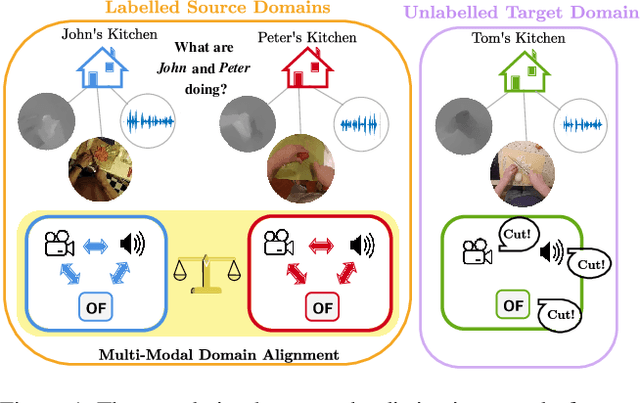PoliTO-IIT-CINI Submission to the EPIC-KITCHENS-100 Unsupervised Domain Adaptation Challenge for Action Recognition
Paper and Code
Sep 09, 2022


In this report, we describe the technical details of our submission to the EPIC-Kitchens-100 Unsupervised Domain Adaptation (UDA) Challenge in Action Recognition. To tackle the domain-shift which exists under the UDA setting, we first exploited a recent Domain Generalization (DG) technique, called Relative Norm Alignment (RNA). Secondly, we extended this approach to work on unlabelled target data, enabling a simpler adaptation of the model to the target distribution in an unsupervised fashion. To this purpose, we included in our framework UDA algorithms, such as multi-level adversarial alignment and attentive entropy. By analyzing the challenge setting, we notice the presence of a secondary concurrence shift in the data, which is usually called environmental bias. It is caused by the existence of different environments, i.e., kitchens. To deal with these two shifts (environmental and temporal), we extended our system to perform Multi-Source Multi-Target Domain Adaptation. Finally, we employed distinct models in our final proposal to leverage the potential of popular video architectures, and we introduced two more losses for the ensemble adaptation. Our submission (entry 'plnet') is visible on the leaderboard and ranked in 2nd position for 'verb', and in 3rd position for both 'noun' and 'action'.
 Add to Chrome
Add to Chrome Add to Firefox
Add to Firefox Add to Edge
Add to Edge